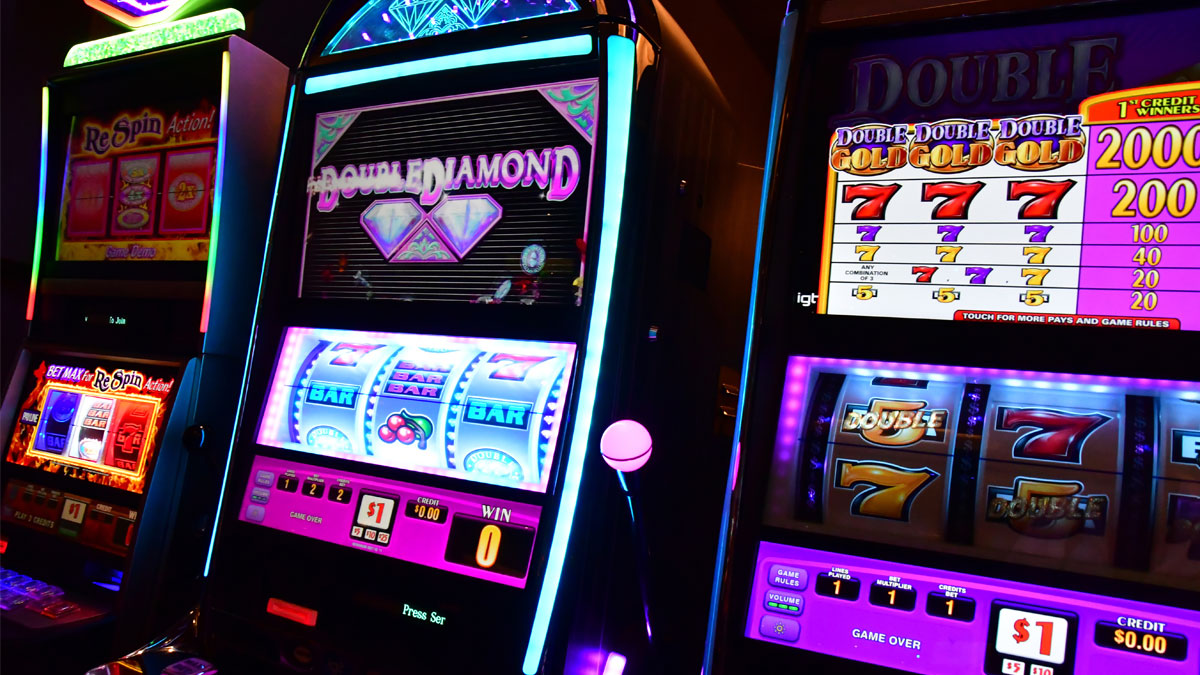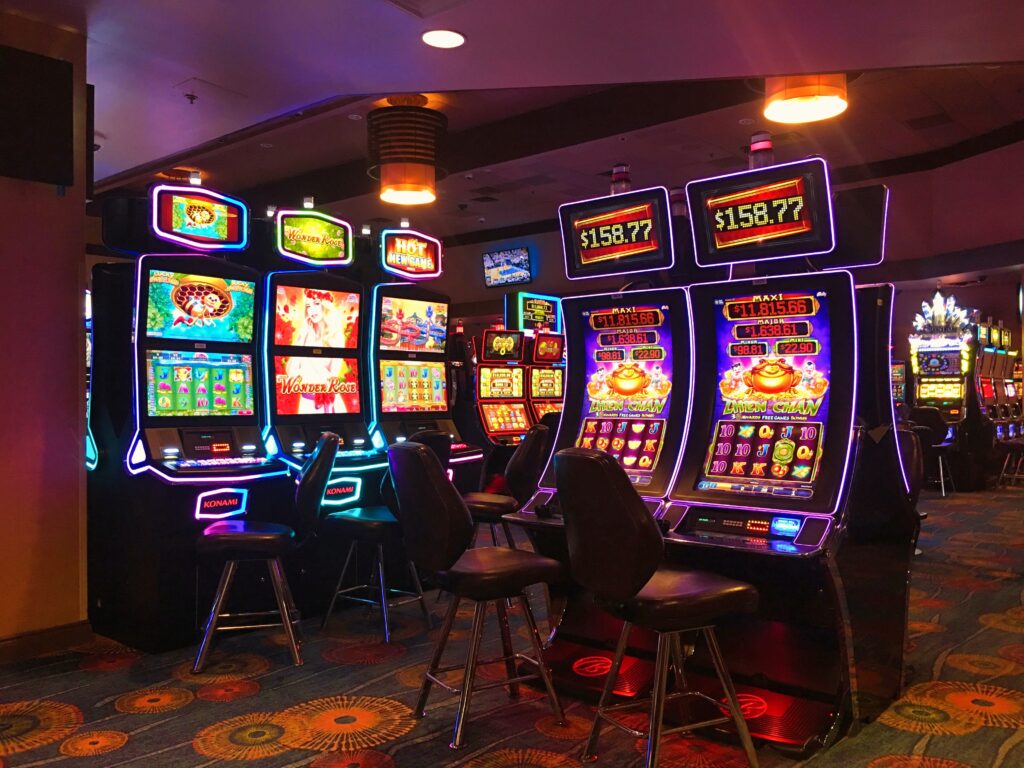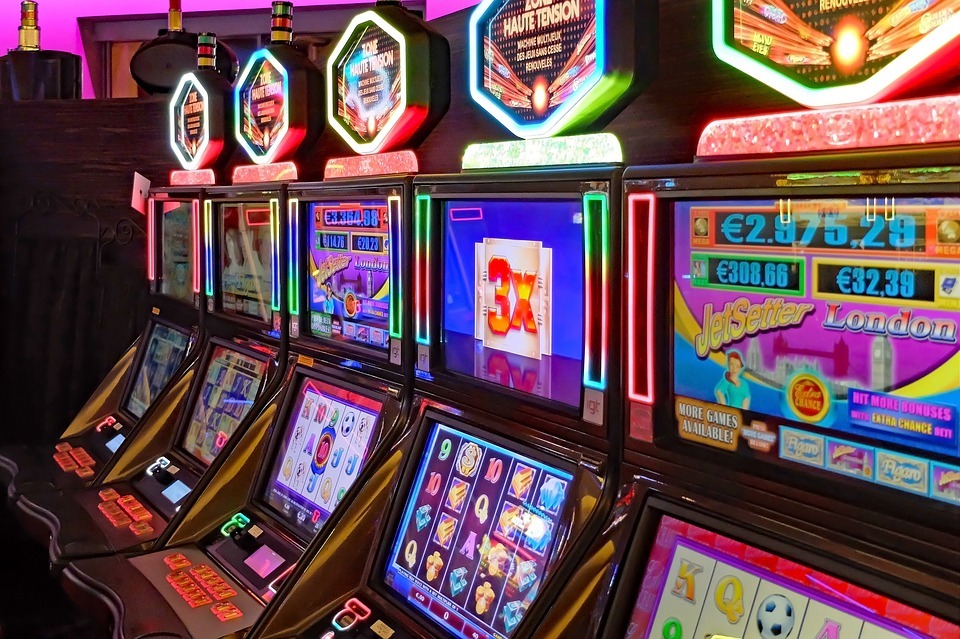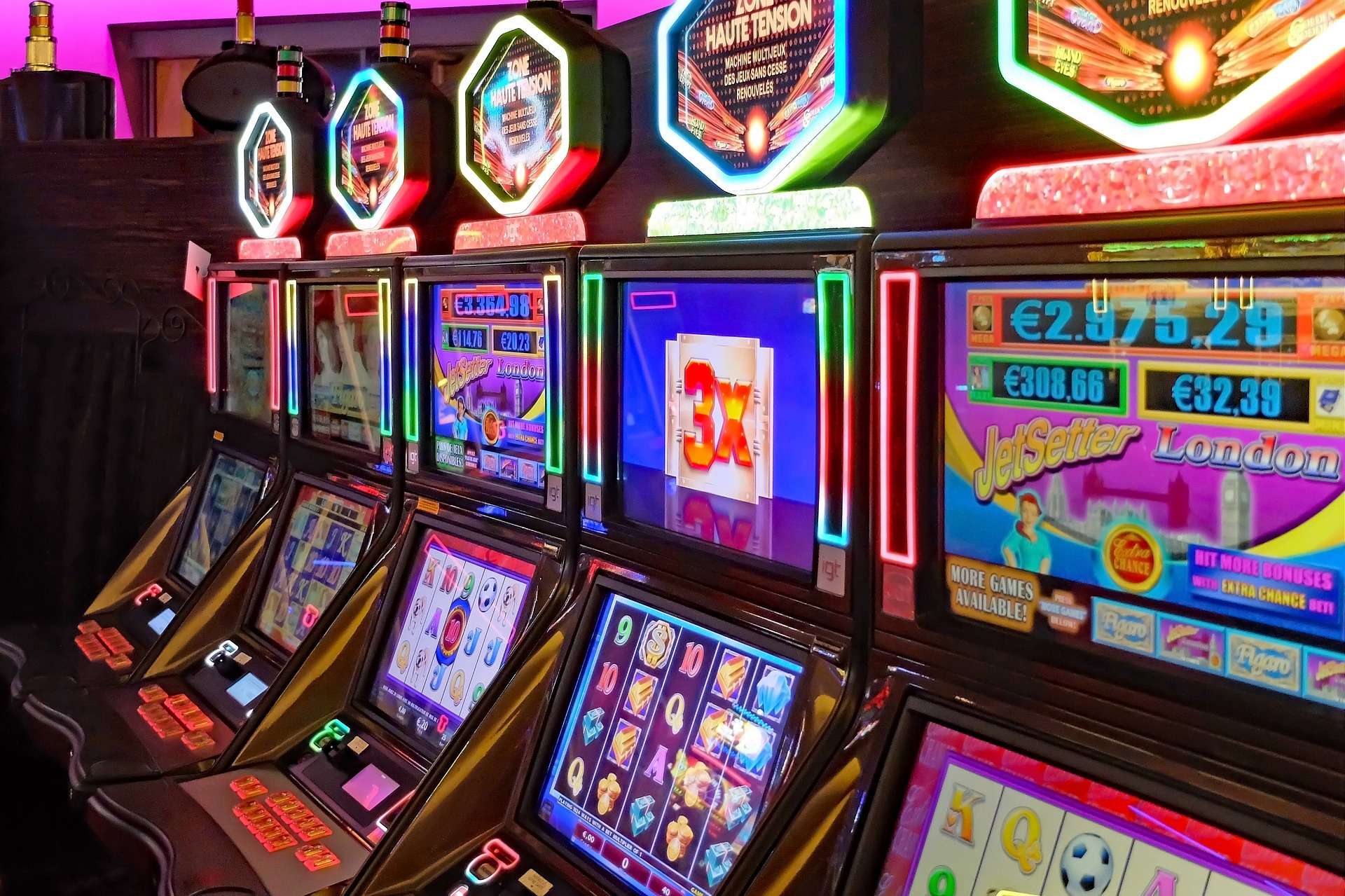Introduction
How To Create A Slot Machine: Creating a slot machine from scratch can be an exciting and rewarding endeavor for those with a passion for game development and programming. Building your own slot machine allows you to unleash your creativity, design unique gameplay mechanics, and potentially share your creation with others.
Creating a slot machine involves a combination of design, programming, and implementation. It requires careful planning, attention to detail, and an understanding of the key components that make up a slot machine game.
The process begins with conceptualizing the theme, visuals, and gameplay mechanics of your slot machine. This includes deciding on the symbols, paylines, bonus features, and overall user experience you want to create. You will need to consider the aesthetics, sound effects, and animations that bring your slot machine to life.
Programming skills are crucial in developing the software for your slot machine. You will need to write the code that handles the game logic, random number generation, payout calculations, and interactions with the player.
Implementing the slot machine involves integrating the software with appropriate hardware, such as the reels, buttons, and display. You may choose to create a physical cabinet or develop a digital version for online or mobile platforms.
Throughout the process, thorough testing and debugging are essential to ensure the functionality and fairness of your slot machine. Regulatory considerations may also come into play, depending on your intentions for the slot machine.
What makes a slot machine work?
Modern gaming machines use computer technology to operate their functions. Slot machine outcomes are determined unsing a Random Number Generator (RNG) which is a mathematically-based program that selects groups of numbers to determine which symbols are selected to produce a winning or losing outcome.
Several key components work together to make a slot machine function:
1. Random Number Generator (RNG): The heart of a slot machine is the RNG, a computer algorithm that generates random numbers at an extremely fast rate. The RNG determines the outcome of each spin and ensures that the results are fair and unbiased.
2. Reels and Symbols: The slot machine consists of reels that display various symbols. These symbols are designed to represent different themes and can include traditional icons like fruits, numbers, letters, or themed symbols. The number of reels can vary, with three and five reels being common.
3. Paylines: Paylines are the lines on which winning symbol combinations must appear for a player to receive a payout. Slot machines can have multiple paylines, and players can choose how many they want to activate.
4. Bet and Coin Size: Players place bets by selecting the coin size and the number of coins to wager per payline. This determines the total bet amount for each spin.
5. Bonus Features: Many slot machines include bonus features that enhance gameplay and offer additional chances to win. These features can include free spins, multipliers, wild symbols, scatter symbols, and interactive mini-games.
6. Sound and Visual Effects: Slot machines utilize sound effects, animations, and visual displays to enhance the overall gaming experience. These elements create excitement, immersing players in the game.

Can slot machines be programmed?
At their core, slot machines are essentially just computers. They’re programmed with a specific set of instructions that determine everything from the symbols on the reels to the payouts for each winning combination.
Slot machines are programmed to operate and determine the outcomes of each spin. The programming of a slot machine involves several key elements. First and foremost, a Random Number Generator (RNG) is implemented. The RNG is a sophisticated computer algorithm that generates random numbers at an extremely fast rate. It ensures that the outcomes of each spin are unpredictable and fair, as required by gambling regulations.
In addition to the RNG, the programming defines the game logic, including the rules and mechanics of the slot machine. This includes factors such as the number of reels and paylines, the symbols and their values, the paytable, and any bonus features or special symbols.
Programming also handles the calculations of payouts, determining the amount a player wins based on the combinations of symbols that appear on the activated paylines.
The programming encompasses the visual and audio elements of the game, including animations, sound effects, and graphics. These elements work together to create an immersive and engaging player experience.
How do you set up an online slot machine?
- Step 1: Choose your market. Your market of operation will affect everything
- Step 2: Create a business plan
- Step 3: Getting a gambling licence in 2023
- Step 4: Hire a team of professionals
- Step 5: Get platform software
- Step 6: Market your brand
- Step 7: Grow your gambling business.
Setting up an online slot machine involves several steps to ensure that the game is functional and ready for players to enjoy. Here’s a general outline of the process:
1. Conceptualization: Begin by brainstorming the theme, design, and gameplay mechanics of your online slot machine. Determine the symbols, paylines, bonus features, and overall user experience you want to create.
2. Game Development: Develop the software for the online slot machine. This involves programming the game logic, random number generation, graphics, animations, sound effects, and user interface. Use programming languages and frameworks suitable for online game development.
3. Testing and Quality Assurance: Thoroughly test the slot machine to ensure it functions correctly and delivers a smooth and enjoyable gaming experience. Test for bugs, glitches, and ensure that the random number generator is generating results fairly.
4. Integration: Integrate the online slot machine software with the online gaming platform or casino website. This includes ensuring compatibility, establishing secure connections, and integrating features such as player account management and payment systems.
5. Compliance and Regulations: Ensure that your online slot machine complies with relevant gambling regulations and requirements. This may include obtaining necessary licenses and certifications.
6. Launch and Marketing: Once your online slot machine is ready, launch it on the designated platform or casino website. Implement marketing strategies to promote the game and attract players.
7. Monitoring and Updates: Continuously monitor the performance of your online slot machine, gather player feedback, and make necessary updates and improvements to enhance the gaming experience and address any issues that arise. Setting up an online slot machine requires a combination of game development skills, technical knowledge, and attention to detail.
How do slot machines make profit?
Slot Machines
And when it comes to revenue from slots, casinos gain it through drops, the money that is being put in by players or the ‘handle’, which is the amount of payout that certain players put into the machine with the hope of winning bigger.
Slot machines are designed to generate profits for the casino or the operator through a built-in advantage known as the house edge. Here’s how slot machines make a profit:
Payback Percentage: Slot machines are programmed to pay back a specific percentage of the total wagers over the long term. This percentage is known as the payback or RTP (Return to Player) percentage. For example, if a slot machine has a payback percentage of 95%, it means that over time, it will pay back 95% of the total wagers and keep 5% as profit.
Random Number Generation: Slot machines use a Random Number Generator (RNG) to ensure the outcomes of each spin are random and unpredictable. The RNG is programmed to create a mathematical advantage for the casino over the long run, ensuring that the odds are in favor of the house.
Bet Size and Volume: Slot machines allow players to place various bet sizes, from small to large. The more players bet and the higher the volume of play, the more profit the casino can potentially make. The combination of numerous players and continuous play on multiple machines generates a substantial revenue stream for the casino.
Bonus Features and Jackpots: Slot machines often feature bonus rounds, free spins, and progressive jackpots. These enticing features can attract players and encourage them to continue playing, increasing the overall profit for the casino.
Game Selection and Variety: Casinos offer a wide selection of slot machines with different themes, features, and payout structures. This variety appeals to different player preferences, ensuring that the casino attracts a broad range of players and maximizes its profit potential.
How do I create an online slot?
- Open the Slot Machine Templates. Click on “Create App Now” button or visit AppsGeyser.com, open the “Slot Machine” app template.
- Adjust the Difficulty
- Choose or Upload Images
- Name your app
- Submit an icon
- Publish App on Google Play
Creating an online slot game involves a combination of design, programming, and implementation. Here’s a general outline of the process:
Conceptualization: Begin by brainstorming the theme, visuals, and gameplay mechanics of your online slot game. Consider the symbols, paylines, bonus features, and overall user experience you want to create.
Game Design: Design the visual elements of your slot game, including symbols, backgrounds, animations, and user interface. Create appealing graphics and animations that align with the chosen theme.
Game Logic and Mechanics: Program the game logic, including the random number generator, symbol combinations, paylines, and bonus features. Determine the rules for payouts, free spins, multipliers, and other gameplay mechanics.
Programming: Develop the software for the online slot game using appropriate programming languages and frameworks. Implement the game logic, user interface, and ensure compatibility with various platforms and devices.
Testing and Quality Assurance: Thoroughly test the online slot game to identify and fix any bugs or issues. Ensure that the game functions correctly, delivers a smooth experience, and adheres to fair gaming practices.
Integration: Integrate the online slot game into an online gaming platform or casino website. Establish secure connections, integrate player account management, and payment systems.
Compliance and Regulations: Ensure that your online slot game complies with relevant gambling regulations and requirements. Obtain necessary licenses and certifications, if applicable.
Launch and Marketing: Launch your online slot game on the designated platform or casino website. Develop marketing strategies to promote the game and attract players.
Monitoring and Updates: Continuously monitor the performance of your online slot game, gather player feedback, and make necessary updates and improvements to enhance the gaming experience.

Are there any legal considerations or regulations to be aware of when creating a slot machine?
When creating a slot machine, it is crucial to be aware of the legal considerations and regulations that govern the development and operation of such gambling devices. The specific laws and regulations may vary depending on the jurisdiction, but there are several common aspects to consider.
First and foremost, obtaining the necessary licenses and permits is typically a legal requirement. Different countries and regions have their own regulatory bodies responsible for overseeing the gambling industry. These authorities ensure that the slot machine meets specific standards, including fairness, security, and responsible gambling practices.
There are often strict regulations regarding the minimum age for players and the location of the slot machine. It is important to comply with age restrictions to prevent minors from accessing the game and to ensure that the slot machine is placed in authorised gambling venues or online platforms.
Another crucial aspect is the fairness of the game. Compliance with standards for fair play is essential to maintain the trust of players and regulators.
Some jurisdictions impose limits on the payout percentages or the maximum bets allowed on slot machines. These restrictions aim to protect players and prevent excessive gambling. It is essential to adhere to these regulations and ensure that the slot machine operates within the specified parameters.
Certain countries or regions may have specific rules regarding advertising, marketing, and promotions related to gambling activities. It is important to understand and follow these guidelines to avoid any legal issues and ensure responsible gambling practices.
How can one optimize the performance and speed of a slot machine game?
Efficient code: Ensure that the code for the slot machine game is clean, well-structured, and optimized for performance. Use efficient algorithms and data structures to minimize processing time and memory usage.
Asset optimization: Optimize graphics, animations, and sound files to reduce their file sizes without compromising quality. Compressing images and using audio formats with smaller file sizes can help improve loading times and reduce memory usage.
Caching: Implement caching techniques to store frequently accessed data, such as game assets or calculations, in memory. This can help reduce the need for repeated computations and improve overall performance.
Multithreading: Utilize multithreading to distribute tasks across multiple threads or processes. For example, you can separate the rendering of graphics from the game logic, allowing them to run concurrently and improve performance.
Minimize network latency: If the slot machine game involves online features, optimize network communications to minimize latency. Use efficient protocols and minimize data transfers to reduce the time it takes to interact with servers.
Performance profiling: Regularly profile and analyze the performance of the game to identify bottlenecks or areas that can be optimized. Profiling tools can help identify resource-intensive functions or inefficient code segments that can be optimized.
What strategies can be employed to enhance the player experience and engagement in a slot machine?
There are several strategies that can be employed to enhance the player experience and engagement in a slot machine:
Engaging Visuals: Creating visually appealing graphics, animations, and themes can capture the players’ attention and immerse them in the game. Vibrant colors, high-quality graphics, and interactive elements can enhance the overall visual experience.
Captivating Sound Effects: Incorporating immersive sound effects, music, and audio cues can heighten the player’s engagement and create a more immersive atmosphere. Well-designed sound effects can add excitement and anticipation to wins or bonus features.
Unique Themes and Storylines: Developing slot machines with unique and intriguing themes or storylines can enhance player engagement. Whether it’s exploring ancient civilizations, venturing into space, or embarking on a treasure hunt, a compelling narrative can keep players invested in the game.
Bonus Features and Mini-Games: Including exciting bonus features, such as free spins, pick-and-click games, or interactive mini-games, can add variety and increase player engagement.
Personalization and Customization: Allowing players to personalize their gaming experience can increase engagement. Features like adjustable bet sizes, autoplay options, and customization of game settings give players a sense of control and cater to their preferences.
Progressive Jackpots: Including progressive jackpots that grow with each player’s bet can create excitement and anticipation. The opportunity to win a substantial, life-changing jackpot can keep players engaged and coming back for more.

Conclusion
Creating a slot machine is a complex and multi-faceted process that involves design, programming, and implementation. It requires a combination of creativity, technical skills, and attention to detail. By following the necessary steps and investing the required effort, you can embark on a journey to bring your own unique slot machine creation to life.
The process starts with conceptualizing the theme, visuals, and slot gameplay mechanics of your slot machine. From there, programming skills are crucial in developing the software that handles the game logic, random number generation, and interactions with the player. Thorough testing and debugging are essential to ensure functionality and fairness.
Implementation involves integrating the software with appropriate hardware, whether it be physical components for a cabinet-based machine or digital elements for online or mobile platforms. You may need to consider regulatory considerations depending on your intentions for the slot machine.
Remember that creating a slot machine requires time, effort, and continuous learning. Keep up with industry trends, gather feedback from players, and iterate on your design to improve the user experience. With dedication and persistence, you can create a slot machine that showcases your unique vision and brings enjoyment to those who play it.










